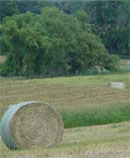
|
|
Secrets for gaining most from your surroundings with least effort As you sow, so shall you reap Maharishi reminds us that our surroundings are our own creation. They are a combination of the result of past action and what we are presently creating. Like a gardener who created a rose in his garden—both the beauty of the rose and the prick of the thorn are part of the rose. Maharishi explains the technique for gaining maximum from our surroundings is an attitude of giving: Maharishi applies this law of giving to personal relations: 'The teacher learns by teaching; in obeying the student commands the respect of the teacher. If your son readily is obedient to you, he captures your heart as a natural return of his obedience. If you are kind to a child he will be kind to you; if you are harsh to him, he will revolt against you. This is action and reaction.’ Maharishi explains that this technique of giving in order to receive is based on a law of science—the law that every action has an equal reaction. If we react to someone in a certain way, someone will react to us in a similar way. This equal reaction may not come from the same person with whom we just interacted. Nature may bring a different agent to deliver the reaction of our behaviour, but the reaction will come to us. We reap the results of whatever we sow. The golden rule
This truth of life puts the full responsibility of what comes to us in life on our own thoughts, speech, and action. It gets rid of blaming anyone outside our self for what comes. Maharishi explains that we have only our own conscience to blame for any negativity coming to us from our surroundings. A kind, forgiving attitude You may ask, ‘what if I have been kind and loving, and my environment is still harsh?’ Maharishi explains that if one feels that one has been loving and positive, and yet there is something wrong in one’s surroundings, then one should just accept it, knowing that it is a result of past actions and just not minding. Addressing the concept of retaliation, Maharishi advises not to come down to the level of the wrong. Maharishi: ‘Rather let the wrong be just a drop in the ocean of your virtue. A common saying is, "Do not resist evil." If evil is resisted, first you must stoop to that level of evil, and second, you are further responsible for the evil influence you are producing in retaliating.’ Thus, love and forgiveness are the way to deal with wrong. Maharishi: ‘Let the impurities of the atmosphere find a refuge in the ocean of purity in your heart, the unfathomable joy of your inner pure conscience. When you forgive, all nature enjoys your brilliance and returns joy to you. Forgiveness, tolerance, purity of heart, sincerity, love, and kindness are the basic platforms from which to enjoy and make full use of the surroundings on the fundamental platform of giving.’ Spontaneous right action through Transcendental Meditation This is achieved through the regular practice of Maharishi’s Transcendental Mediation Technique. Through the regular practice of Transcendental Meditation, one naturally puts oneself in a state where he will not only be making full use of the surroundings, but also where the surroundings will be of full use to him. Right action happens spontaneously, without him having to do anything. Then one enjoys automatic support from Natural Law and from one’s surroundings. Maharishi explains that only through the experience of Transcendental Consciousness can one reach a level of inner peace and harmony and thus draw the support of Natural Law for full support of one’s surroundings. This can never be achieved through suggestion, or force, or moral pressure. Broader vision in personal relationships ‘The tragedy is the same, the circumstances are the same. At one moment he fails to derive the advantage and is miserable from the surroundings, but at the next moment—by virtue of raising his consciousness through the method of Transcendental Meditation—he begins to enjoy the surroundings and to develop maximum advantage for himself and for others.’ In conclusion, in order to make full use of the surroundings:
Copyright 2007, Maharishi University of Management
|
|

